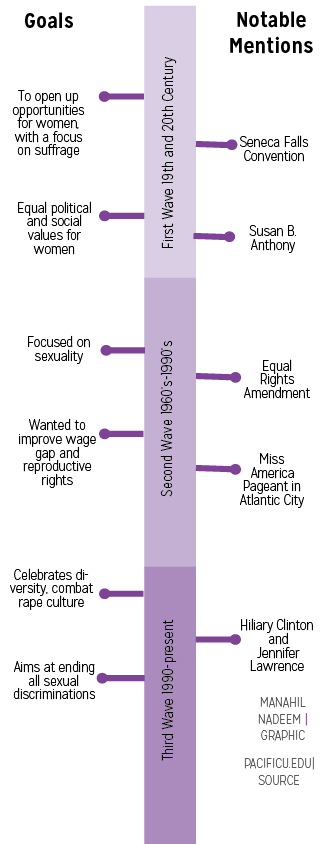 One in four female college students will experience sexual assault on campus, according to the Association of American Universities. That means in an average class of 28 at Carmel, over seven girls sitting in the room will likely be assaulted. To claim the issue of sexual assault is rare or doesn’t apply to our community is simply not true. Still, as frequently as those situations have become, it is still commonplace to blame people who are victims of sexual harassment.
One in four female college students will experience sexual assault on campus, according to the Association of American Universities. That means in an average class of 28 at Carmel, over seven girls sitting in the room will likely be assaulted. To claim the issue of sexual assault is rare or doesn’t apply to our community is simply not true. Still, as frequently as those situations have become, it is still commonplace to blame people who are victims of sexual harassment.
The issue begins at a young age. The actions and reactions to girls at a young age sets the precedent for how they will be treated in the future. Even seemingly minor concepts such as dress codes plants the idea in girls’ heads that they are accountable for others’ inappropriate actions. If girls’ clothing is deemed revealing enough to distract others, rather than telling them to pay attention, girls are told they need to cover up. This fosters the idea that it is on the girls to change based on others’ responses to them.
As a feminist, I am aware feminism has many different facets and purposes. In some parts of the world, it is considered radical that girls can go to school. Clearly we’ve overcome that here, but there’s still a long way to go. One of the most dangerous parts of “feminism” in first-world countries is among the most sexist: so-called slut-shaming. These statements escalate to the point of questions such as “But what were you wearing?” and “Had you been drinking?” Neither of those questions directly reference sexual assault, but a common reaction is associating them with victims of rape. Labeling girls’ actions and bodies as sexual only builds on this problem.
Slut-shaming is often labeled as feminist, when in reality, it is nothing more than supporting the ancient ideals of what a “lady” should act like. Slut-shaming is when someone criticizes a woman for coming off as overly sexual. Girls’ activities such as dancing or cheerleading are often already sexualized, and when a group of people, usually male, begin to make inappropriate remarks towards them, the initial response is often that the girls have to stop. Rather than continuing this detrimental trend, we need to shift the focus whose actions need to change. Rape culture is perpetuated through the use of misogynistic language, the objectification of women’s bodies, the glamorization of sexual violence, creating a society that disregards women’s rights and safety.
Instead of telling girls to cover up, stay away from parties and not do anything someone may ever interpret as sexual, it is on us to hold the abusers and harassers accountable.































![AI in films like "The Brutalist" is convenient, but shouldn’t take priority [opinion]](https://hilite.org/wp-content/uploads/2025/02/catherine-cover-1200x471.jpg)













































![Review: “The Immortal Soul Salvage Yard:” A criminally underrated poetry collection [MUSE]](https://hilite.org/wp-content/uploads/2025/03/71cju6TvqmL._AC_UF10001000_QL80_.jpg)
![Review: "Dog Man" is Unapologetically Chaotic [MUSE]](https://hilite.org/wp-content/uploads/2025/03/dogman-1200x700.jpg)
![Review: "Ne Zha 2": The WeChat family reunion I didn’t know I needed [MUSE]](https://hilite.org/wp-content/uploads/2025/03/unnamed-4.png)
![Review in Print: Maripaz Villar brings a delightfully unique style to the world of WEBTOON [MUSE]](https://hilite.org/wp-content/uploads/2023/12/maripazcover-1200x960.jpg)
![Review: “The Sword of Kaigen” is a masterpiece [MUSE]](https://hilite.org/wp-content/uploads/2023/11/Screenshot-2023-11-26-201051.png)
![Review: Gateron Oil Kings, great linear switches, okay price [MUSE]](https://hilite.org/wp-content/uploads/2023/11/Screenshot-2023-11-26-200553.png)
![Review: “A Haunting in Venice” is a significant improvement from other Agatha Christie adaptations [MUSE]](https://hilite.org/wp-content/uploads/2023/11/e7ee2938a6d422669771bce6d8088521.jpg)
![Review: A Thanksgiving story from elementary school, still just as interesting [MUSE]](https://hilite.org/wp-content/uploads/2023/11/Screenshot-2023-11-26-195514-987x1200.png)
![Review: "When I Fly Towards You", cute, uplifting youth drama [MUSE]](https://hilite.org/wp-content/uploads/2023/09/When-I-Fly-Towards-You-Chinese-drama.png)
![Postcards from Muse: Hawaii Travel Diary [MUSE]](https://hilite.org/wp-content/uploads/2023/09/My-project-1-1200x1200.jpg)
![Review: "Ladybug & Cat Noir: The Movie," departure from original show [MUSE]](https://hilite.org/wp-content/uploads/2023/09/Ladybug__Cat_Noir_-_The_Movie_poster.jpg)
![Review in Print: "Hidden Love" is the cute, uplifting drama everyone needs [MUSE]](https://hilite.org/wp-content/uploads/2023/09/hiddenlovecover-e1693597208225-1030x1200.png)
![Review in Print: "Heartstopper" is the heartwarming queer romance we all need [MUSE]](https://hilite.org/wp-content/uploads/2023/08/museheartstoppercover-1200x654.png)


nicolas brassard • Dec 23, 2016 at 4:15 am
I too wish to do whatever I want without consequence!
Marvin J. Salzmann, MD • Nov 19, 2016 at 2:02 pm
I agree. As a retired 75 year old doctor of internal medicine, husband, father, and grandfather, l feel my only goal in life has been to make others feel good about themselves. Self esteem only comes from making another human being feel good about themselves. My family, friends,and patients only came to me for my knowledge and good humor. Negativism only begets negative results.